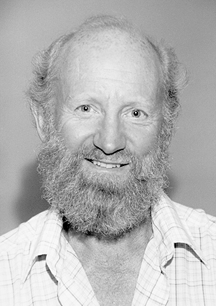 1936-1985
1936-1985
Born in Leeds, England to missionary parents, David Robinson lived most of his early years in Morocco and Spain. He attended grammar boarding school in Wales, and took his university training at the University of Nottingham, receiving his BS with honors in Physiology and Biochemistry in 1959, and a doctorate in Nutrition in 1962.
He spent three years each as a lecturer in Animal Nutrition at the University of Liverpool and as a Research Scientist CSIRO in Australia. In Australia he was assigned to duty in the Outback to study the physiology of nutritional depletion and repletion of ruminants in the semi-arid tropics but with continuing focus on protein nutrition. In 1969 Dave joined the Department of Animal Science at UCD where his research involved ruminants and non-ruminants with major emphasis on factors controlling food intake.
Dave was an effective and popular lecturer with an exceptional command of language. His thorough knowledge of subject matter, combined with great story-telling ability made his courses popular and him in demand as a guest lecturer.
In addition to his teaching and research, Dave served as Associate Dean of the College of Agricultural and Environmental Sciences from 1976-78. He was then recruited to serve as Director of the Small Ruminant Program. He also served as Associate Dean for International Programs from 1981 to 1984. The SR-CRSP, under his enthusiastic leadership, pioneered a new kind of international program in agriculture. He was highly respected and beloved by people at all levels of the program and was an effective spokesman and supporter of the CRSP both in Congress and the Agency for International Development.
Dave Robinson was a person with deep concern for people throughout the world, and for the role the University might play in contributing to their well-being. His own words, from an address to the U.S. House Select Committee on Hunger in 1984, best express his views: "This University has a mandate. It is a mandate to seek the truth, to search for new knowledge, and to make the truth and knowledge available to all the family of mankind. We hope to train a cadre of people who not only understand the problems of hunger and poverty, but who have the sensitivity and courage to resolve them."
